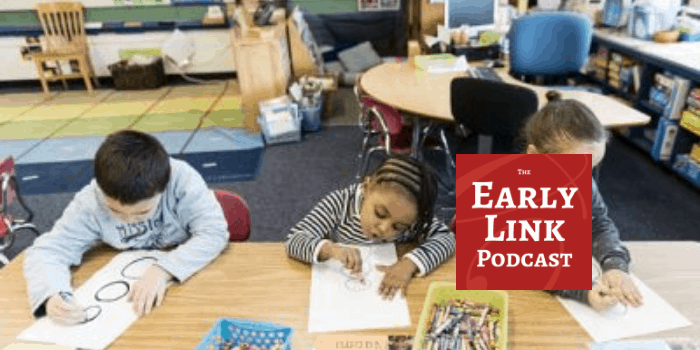
Toward Equitable Achievement in Oregon with Abdikadir Bashir Mohamud
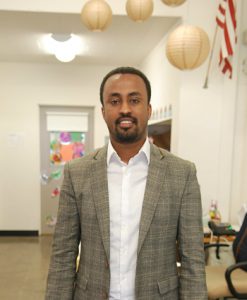 This segment features Abdikadir Bashir Mohamud, executive director at the Center for African Immigrants and Refugees of Oregon and the program manager for the center’s Preschool Promise Program. In this interview, we discuss the purpose of CAIRO as a social change organization, the Somali community in Oregon, collective efforts to change education outcomes, and much more.
This segment features Abdikadir Bashir Mohamud, executive director at the Center for African Immigrants and Refugees of Oregon and the program manager for the center’s Preschool Promise Program. In this interview, we discuss the purpose of CAIRO as a social change organization, the Somali community in Oregon, collective efforts to change education outcomes, and much more.
Selected quotes:
2:09 “The biggest wave of Somalis arrived here after the Civil War that erupted in Somalia in 1991 … Since then, Somalis have been increasingly coming to this state. We mostly come here as refugees and asylum seekers.”
5:01 “We talked to teachers, parents and students. For us, education… required the collective efforts of all these primary stakeholders.”
5:50 “Out of that report came about the need to organize ourselves to have an advocacy organization. That’s how CAIRO came about.”
6:59 “We have students who were born in difficult times … for example, an 8-year-old student who doesn’t speak English, who has never had a formal class in math. All the sudden, they move to this city and are thrown into a class.”… “The second category are those who were born in this country or came in as infants and did not have the opportunity to go to preschool or kindergarten. So by the time they go to school, they’re playing catch up.”
8:18 “We try to do what we can. I think the best place to do that is at the early learning centers. How can we send our kids to school as early as possible.”
10:53 “When we’re talking about learning, we’re not just talking about the academics piece. For us, the social piece is equally important. The cultural piece is very relevant. We try to give all those tools and perspectives to the student.”
12:26 “We’ve been through difficult times before but I think we are in the most difficult times now. What is unique about the Somali community in Oregon is that they fit into almost any category to be a target for hate crimes: We are immigrants, we are refugees, we are black … on top of that and perhaps the most important is that we are Muslims.” He said recently a student’s headscarf was pulled from her head and staff excluded a middle school student due to the way she was dressed.
17:01 “I was very proud of is our last parent-teacher conference. I have personally given rides to mothers – driving to their home to pick them up, take them to the conference and drive them home.
21:25 “Initially, there was this belief in the community that it was too good to be true. We would have a family register their kids in two schools – they’d register with us, but just to be sure they’d register with the school district. Now, we have a long waiting list. I get calls 2-3 times a week by parents asking.”
22:32 “I might be naïve or ignorant of the political nature of this state. But what I profoundly believe is that we should never politicize education. There shouldn’t be politics about ensuring children learn equitably and successfully across any lines or background. I am frustrated in having a conversation about how do we maintain what we have. We should be talking about how to expand what we have…”

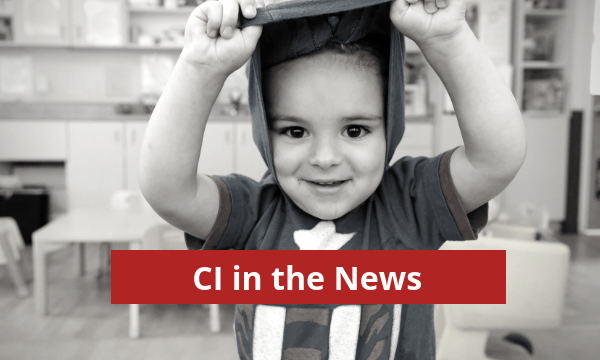
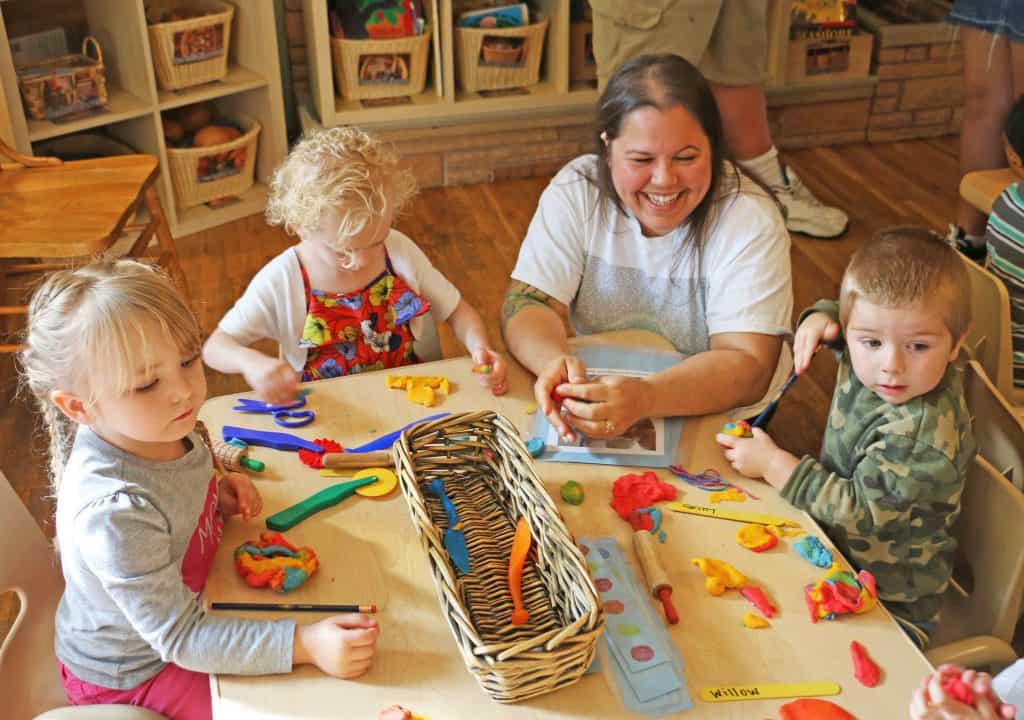
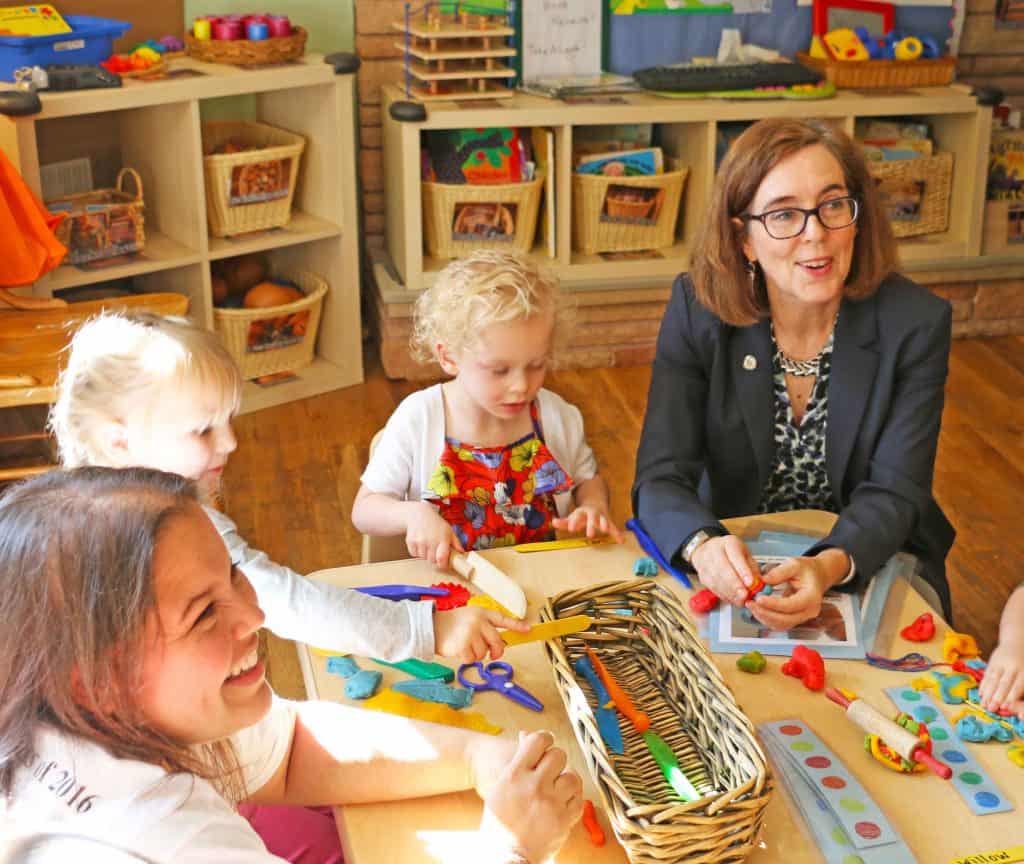 Read the full story in the Bend Bulletin
Read the full story in the Bend Bulletin
 Children’s Institute invited state legislators to visit preschools in their districts to see the benefits of early learning first-hand. Legislators visited a wide variety of preschool classrooms where three and four year-olds were learning the pre-academic and social-emotional skills essential for kindergarten readiness.
Children’s Institute invited state legislators to visit preschools in their districts to see the benefits of early learning first-hand. Legislators visited a wide variety of preschool classrooms where three and four year-olds were learning the pre-academic and social-emotional skills essential for kindergarten readiness.